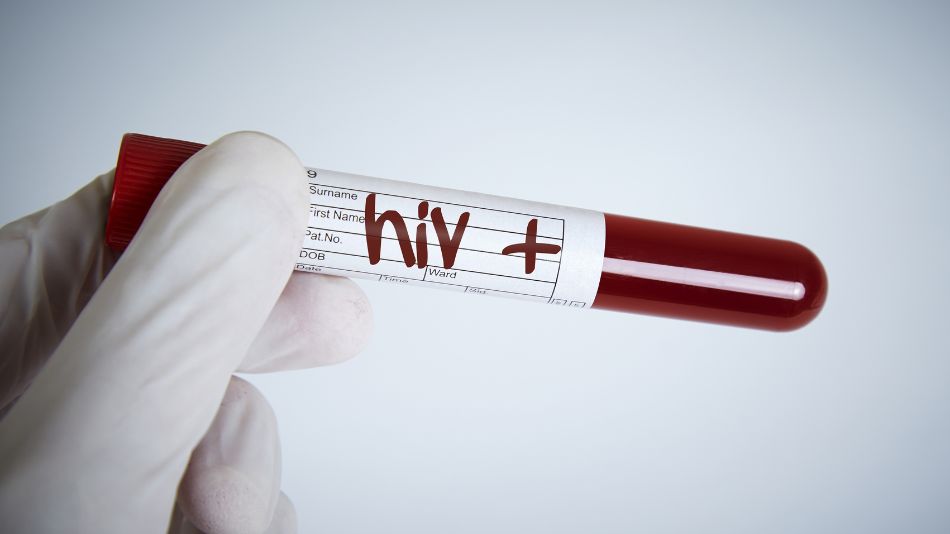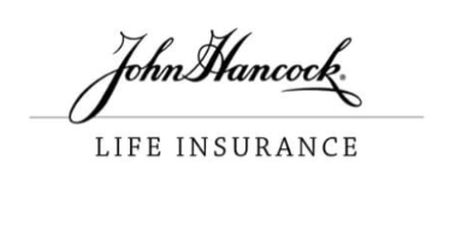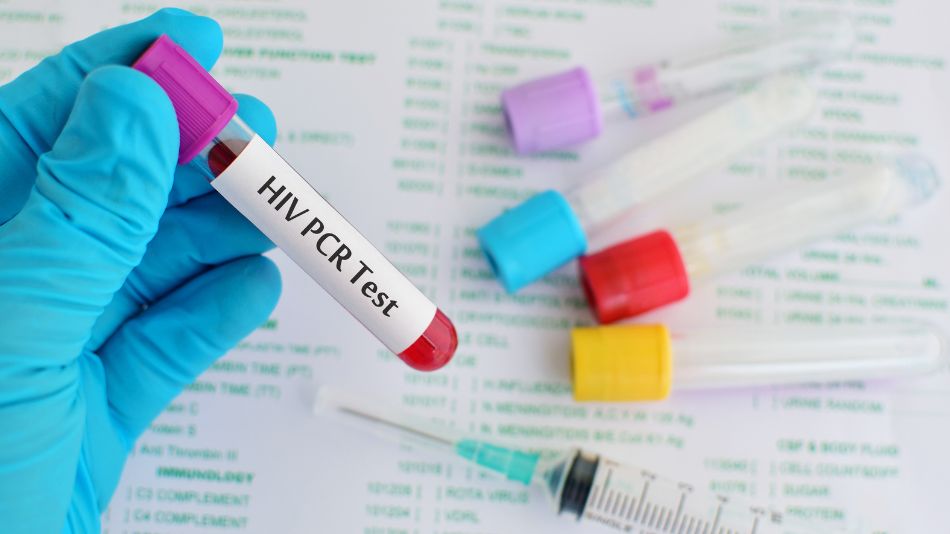

If you’re living with HIV, you may wonder if you’re eligible for life insurance. The good news is that options are available to you, and in this article, you’ll find the best life insurance for HIV patients.
While it may be more challenging to find coverage, and you may pay higher premiums than someone without HIV, securing life insurance that meets your needs is possible.
Before diving into the best life insurance for HIV patients, it’s essential to understand what HIV is and how it can affect your ability to get life insurance.
HIV is a virus that attacks the immune system, making it harder for your body to fight off infections and diseases. While HIV is a severe condition, it’s no longer the death sentence it once was. With proper treatment, people with HIV can live long, healthy lives.
However, some life insurance companies may still view HIV as a high-risk condition, impacting your ability to get coverage.

If you are living with HIV, you may be wondering if you can still get life insurance coverage.
The good news is that options are available to you, but it’s essential to understand how HIV can affect your life insurance application and coverage.
When you apply for life insurance as an HIV-positive individual, the insurance company will take into account several factors, including:
Based on these factors, the insurance company will determine whether or not to offer you coverage and at what rate.
There are several types of life insurance policies available to HIV-positive individuals, including:

When obtaining life insurance, people living with HIV may face some challenges.
However, with advances in medicine and increasing awareness about HIV, many insurance companies now offer policies specifically designed for HIV patients.
Here are some factors that can affect your life insurance premiums as an HIV patient:
Age is one of the most significant factors affecting life insurance premiums. The older you are, the higher your premiums are likely to be.
This is because older people are more likely to develop health problems and pass away sooner than younger people.
As an HIV patient, your age may also affect your premiums, as older people with HIV may have a higher risk of developing complications.
Your health status is another critical factor affecting your life insurance premiums.
As an HIV patient, your health status can vary depending on factors such as your CD4 count, viral load, and medication adherence.
Insurance companies may also consider any other health conditions you may have, such as diabetes or high blood pressure.
The better your overall health status, the lower your premiums are likely to be.
Lifestyle factors such as smoking, alcohol consumption, and drug use can also affect your life insurance premiums.
As an HIV patient, you may risk developing health problems related to these lifestyle factors.
Insurance companies may also consider your occupation and hobbies when determining your premiums.
The type of life insurance policy you choose can also affect your premiums. Term life insurance policies tend to be less expensive than permanent life insurance policies.
However, permanent policies may offer more benefits, such as cash value accumulation and lifetime coverage.
Different insurance companies may have other underwriting guidelines for HIV patients.
Some companies may specialize in providing life insurance for HIV patients and may offer more affordable premiums and better coverage options.
It’s essential to compare quotes from different insurance companies to find the best policy for your needs.
Individuals who are adherent to their HIV treatment plan may pay lower premiums than those who are not.
Higher coverage amounts typically result in higher premiums.
Several factors can affect your life insurance premiums as an HIV patient. By understanding these factors, you can make informed decisions when shopping for life insurance and find the best policy for your needs.
 HIV Medical Form" width="950" height="534" />
HIV Medical Form" width="950" height="534" />
When choosing life insurance for HIV patients, there are a few critical criteria to remember. Here are some factors to consider as you evaluate your options:
Not all life insurance companies are experienced in underwriting policies for people with HIV.
It’s essential to choose an insurer with a history of working with HIV patients who understands this population’s unique needs.
Some insurers may require more antiretroviral therapy (ART) before offering coverage, while others may have age restrictions or other limitations.
Do your research to find a company with a track record of providing fair and comprehensive coverage for people with HIV.
The coverage you need will depend on various factors, including your income, debts, and other financial obligations.
Be sure to choose a policy that provides enough coverage to meet your needs without overpaying for unnecessary benefits.
Consider working with an independent broker who can help you compare policies from multiple insurers and find the best fit for your situation.
Life insurance premiums vary widely, depending on the insurer, coverage amount, and other factors.
Shop around and compare quotes from multiple companies to find the most affordable policy that meets your needs.
Some insurers may offer payment options that fit your budget, such as monthly or quarterly payments, while others may require annual fees. Be sure to choose a payment plan that works for you.
Review the terms and conditions carefully before signing up for a life insurance policy.
Look for any exclusions or limitations that may impact your coverage, such as restrictions on travel or specific activities.
Be sure to ask your insurer any questions about the policy, and don’t hesitate to seek advice from a financial advisor or attorney if needed.
By considering these criteria, you can find a life insurance policy that provides comprehensive coverage and peace of mind for you and your loved ones.

If you are living with HIV, obtaining life insurance can be a challenge.
Fortunately, several life insurance companies now offer policies specifically designed for HIV patients.
Here are three of the best life insurance companies for HIV patients to consider:

AIG is one of the best life insurance companies for HIV patients. They offer guaranteed acceptance life insurance policies that do not require a medical exam or health questions.
Here are AIG’s specific criteria to be accepted with HIV.
While premiums for guaranteed acceptance policies are typically higher than for traditional policies, they provide an option for those who may not qualify for other types of coverage.

Prudential is another top life insurance company for HIV patients. They offer traditional life insurance policies to people with HIV who meet specific criteria.

John Hancock is a third option for HIV patients seeking life insurance.
They offer traditional life insurance policies to people with HIV who meet specific criteria.
When considering life insurance companies for HIV patients, shopping around and comparing policies from different providers is essential.
Working with an independent insurance broker can help you find the best policy for your needs and circumstances.

If you are living with HIV and looking for life insurance, you should keep a few things in mind to make the application process as smooth as possible.
Here are some tips to help you navigate the process:
Some major life insurance companies do not offer coverage to people with HIV.
However, working with an independent broker can help you compare options from multiple insurers and find a policy that suits your needs.
To qualify for life insurance, HIV-positive applicants must meet additional underwriting criteria.
This typically includes self-identifying as an individual living with HIV between the ages of 20 and 65 and having been on highly active antiretroviral therapy (HAART) for at least two years with favorable lab results.
Some insurance companies now offer specialized policies explicitly designed for HIV patients.
These policies may have more lenient underwriting criteria and offer coverage without the need for medical exams.
HIV patients may be required to undergo medical exams and disclose detailed medical history during the application process.
Being honest and upfront about your condition and any medications or treatments you are currently experiencing is essential.
Your overall health will influence your monthly premiums, so it is important to maintain a healthy lifestyle and keep track of your health.
This includes adhering to your treatment plan, monitoring your viral load, and avoiding behaviors that could put your health at risk.
By following these tips, you can increase your chances of getting approved for life insurance and find a policy that provides the necessary coverage.
Finally, lead a healthy lifestyle. Doing things like daily exercise, eating right, and cutting out things like smoking can help greatly.
You can also look at getting a regular flu shot to help protect you as well.
You can even document these things it can go a long to show the insurance company that you are serious about your health.

If you are living with HIV, you may be aware that medical advances have significantly improved life expectancies for HIV patients.
This has led to a reassessment of underwriting criteria by life insurance companies, making more options available for those living with HIV.
While it is true that HIV patients still face specific challenges when seeking life insurance coverage, the situation has improved significantly in recent years.
As a result, it is now possible for HIV patients to access a range of life insurance policies that were previously unavailable to them.
One crucial factor to consider when seeking life insurance as an HIV patient is the type of policy you desire.
For example, term life insurance policies may be more expensive for HIV patients than those without the condition. However, other options, such as whole life insurance policies, may be more affordable.
Another factor to consider is the impact of your HIV treatment plan on your coverage. Some life insurance companies may be more willing to provide coverage if you follow a treatment plan that is helping to manage your condition effectively.
Overall, the impact of medical advances on life insurance for HIV patients has been significant. While challenges remain, more options are available than ever, making it easier for HIV patients to access the life insurance coverage they need.
In conclusion, finding life insurance if you have HIV can be challenging, but it is possible.
You may have to shop around and compare policies from different insurers to find one that meets your needs. Here are some key takeaways to keep in mind:
Remember that having HIV does not necessarily mean you cannot get life insurance coverage.
With some research and guidance, you can find a policy that provides the protection and peace of mind you need for yourself and your loved ones.
Yes, HIV-positive individuals can qualify for life insurance. However, it is essential to note that obtaining life insurance for HIV-positive individuals may be more complicated than for those without HIV. Insurance companies will require detailed medical information and may request additional testing.
Several insurance companies offer life insurance for HIV-positive individuals, including AIG, Gerber, and Great Western. Researching and comparing policies to find the best coverage for your individual needs is important.
The cost of life insurance for HIV-positive individuals may be higher than for those without HIV due to the increased risk of health complications. Factors that may affect the cost of life insurance for HIV-positive individuals include age, overall health, and the severity of the HIV infection.
Some insurance policies may have exclusions or limitations for life insurance coverage for HIV-positive individuals. It is essential to carefully review the terms of any policy before purchasing to ensure that it meets your needs.
Yes, HIV-positive individuals can also obtain long-term care insurance. However, like with life insurance, the process may be more complicated and require additional medical information.
No government programs provide free or low-cost life insurance specifically for HIV-positive individuals. However, there may be other government programs that assist with medical expenses and additional related costs. Researching and comparing available options is recommended to find the best support for your individual needs.
Are you dealing with other health conditions? Here is a list of articles to check out.
Chris Holdheide a modern Renaissance man, juggling the roles of a dedicated father, a loving husband, a successful business owner, and a captivating personal finance blogger. Having spent five years in the financial services industry, where he specialized in life and health insurance, investments, and mortgages, Chris now passionately shares his wealth of knowledge on diverse financial topics.